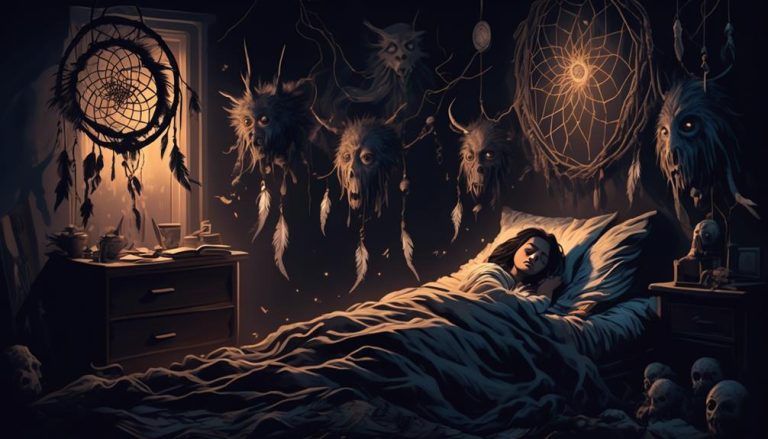
Recurrent nightmares could be a sign of a sleep issue if you find yourself experiencing them when you sleep. Nightmares can have a variety of origins. They might be brought on by stress or trauma you've encountered, or they can just be the result of you trying to dream your emotions away. To resume restful nights, there are methods for treating nightmare problems. These could be the causes of your recent dreams, along with some suggestions for how to stop them. reasons why nightmares keep coming back
Many factors, such as stress, worry, lack of sleep, and some drugs, can result in recurrent nightmares. Seeking help from your physician might help rule out any underlying medical concerns if you experience disturbing nightmares on a frequent basis. Trauma or stress are frequently assumed to be the causes of nightmares. Still, research indicates that nightmares can stem from a wide range of sources.
For instance, drug side effects, mental health issues, or sleep abnormalities can all cause disturbing dreams. Nightmares can also be brought on by eating particular foods or sleeping poorly at night. To rule out any underlying problems, you should see a doctor if you're experiencing recurring nightmares. Moreover, using sleep management strategies like journaling before bed or relaxation treatment may lessen the frequency of nightmares. As some foods might lower blood sugar levels, it is always important to note if there is a correlation between food intake and night terrors.
How dreams affect your sleep While nightfall is meant to be a time of relaxation and renewal, it may also be frightening for many individuals. Recurrent nightmares can leave you feeling scared, worn out, and unable to sleep, whether you're running from an attacker or wondering about your fatality.
Why do you think you might be having nightmares?
1 . Not having enough rest Your nightmares may be preventing you from getting adequate rest if they're making it difficult for you to fall asleep.
2 . Insufficient supervision A common cause of nightmares is feeling powerless over one's living circumstances. Even years after the trauma, victims frequently have dreams about the incident.
3 . Daytime drowsiness The quality of your nighttime sleep may also be impacted if you are experiencing daytime tiredness.
4 . Bad behaviors Eating meals high in carbohydrates right before bed or drinking coffee late at night are two habits that may keep you awake.
Upvoted. Thank You for sending some of your rewards to @null. Get more BLURT:
@ mariuszkarowski/how-to-get-automatic-upvote-from-my-accounts@ blurtbooster/blurt-booster-introduction-rules-and-guidelines-1699999662965@ nalexadre/blurt-nexus-creating-an-affiliate-account-1700008765859@ kryptodenno - win BLURT POWER delegationNote: This bot will not vote on AI-generated content